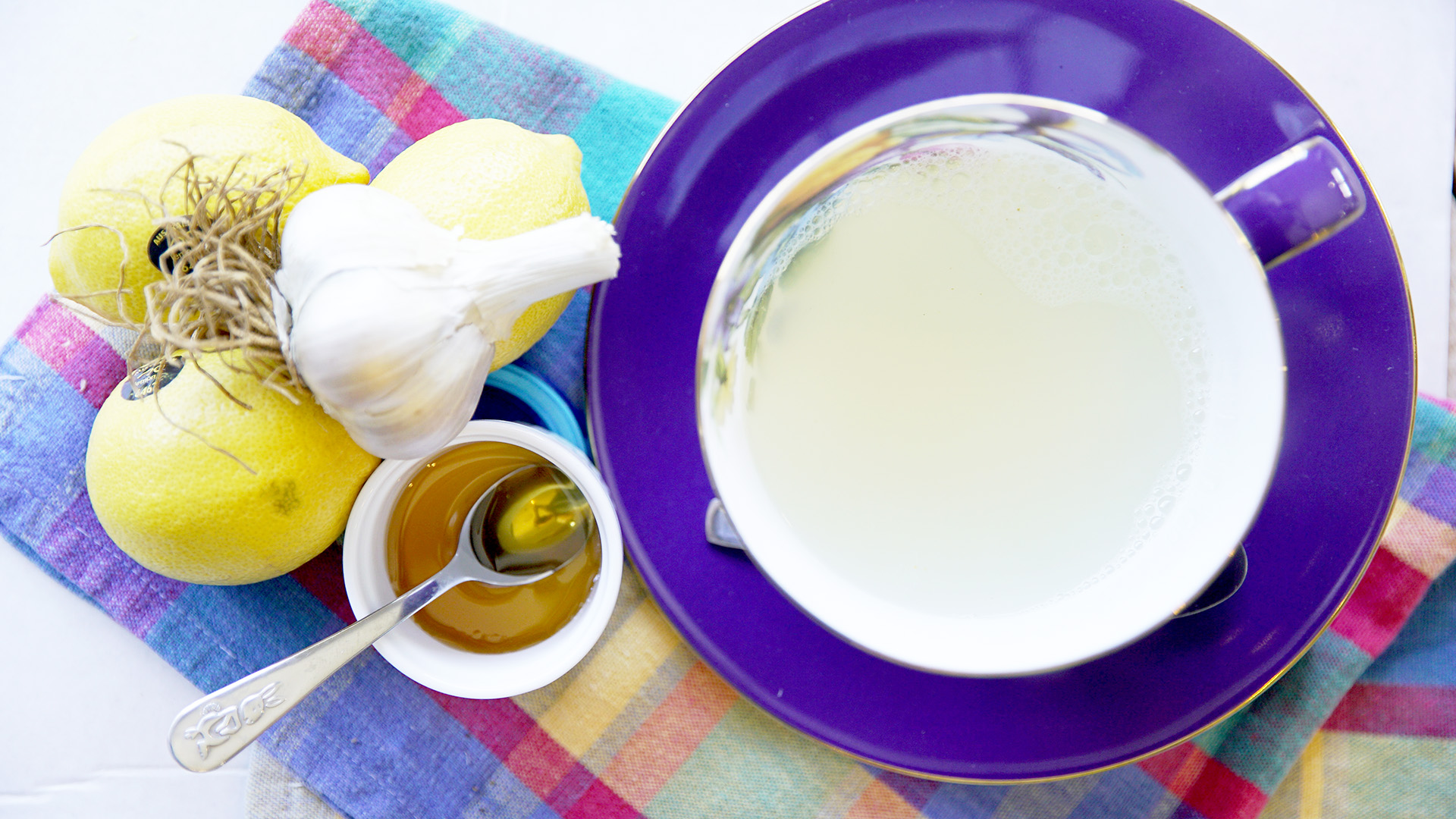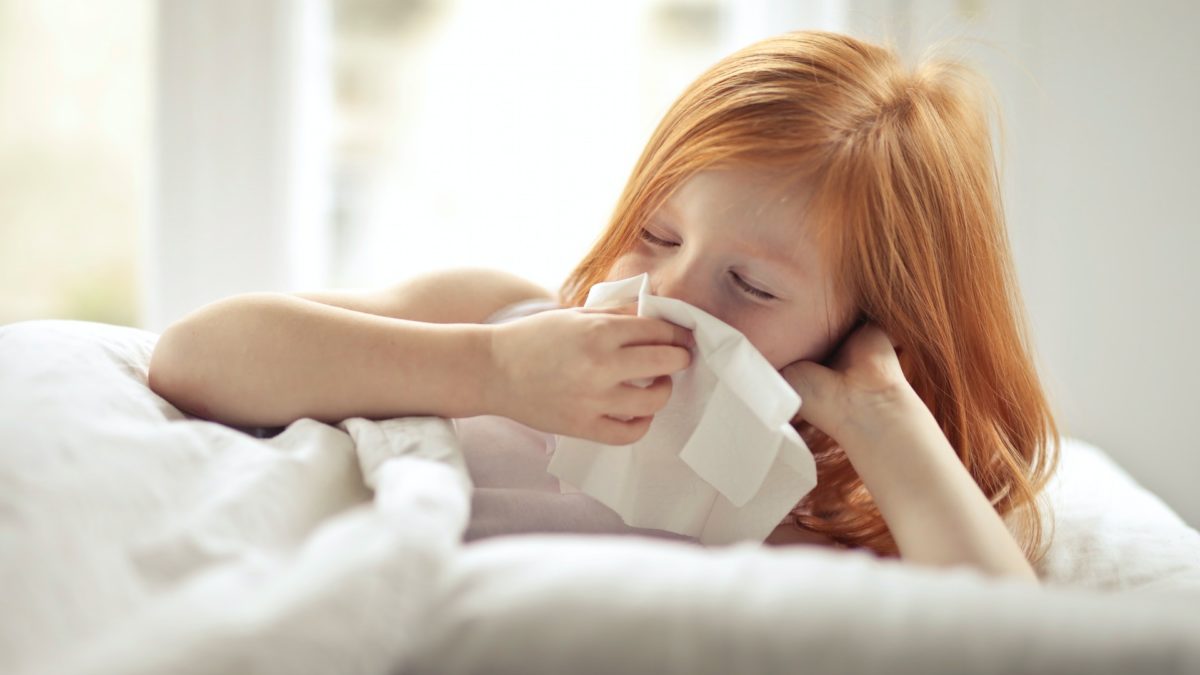Are you at home again looking after a sick child? If you’ve ever felt like your child is sick every two weeks—especially since they’ve started child care or school—you’re definitely not alone.
Read on not only for the answer behind why it feels like your child is getting sick every other week, but also answers to other common questions such as how to boost their immunity and when it’s a good idea to have a chat with your child’s doctor.
How often is too often for a child to be sick?
Parents are often worried that a child who always seems to have a cold or sniffles might have a weak or compromised immune system. “The reality is that it is common for babies and toddlers to have eight to 10 colds a year when the immunity they received from their mum starts to fade,” says Dr Neil Ginsberg, a paediatrician with the Sydney Adventist Hospital.
“This number will reduce as their own immunity builds. However, with more than 100 different cold viruses, this may take some time,” he continues.
How to prevent children from falling sick
The reality is, as Dr Simone Kooke, a GP from Sydney says, it will always be a challenge trying to prevent common illnesses spreading among younger children. This is because unlike older children (around 10 years old), younger ones often cannot be relied upon to cover their mouths when they cough or wash their hands afterwards.
Dr Simone has a few more suggestions in the video below on what to do to keep small children from being exposed to unnecessary germs. She even gives a rather surprising tip on how to kill germs lurking around in soft toys.
How do you boost a child’s immune system?
There are some things you can also do to help boost your child’s immune system to stay fighting fit and keep flu and cold symptoms at bay. Resident nutritionist Amanda Muhl has some suggestions below.
At the same time, it’s important to remember that no one particular food can give your child a super immune system. The key is to provide them with a variety of foods, and therefore nutrients.
1. Vitamin C and zinc
Citrus fruits, dark leafy greens, broccoli, kiwi fruit and capsicum are good sources of vitamin C and beta carotene. Vitamin C is an antioxidant that helps to protect our cells, as well as reduce the length and severity of colds. Beta carotene also boosts our body’s first line of defence: Our skin, lungs and digestive tracts.
Zinc can be found in seeds, nuts, legumes, dairy and tofu.
2. Vitamin B
Whole grains, bananas, nuts, vegetables and legumes contain vitamins from the B group. Vitamin B, especially B6 and B12, helps your body produce “killer cells” which destroy infected ones.
3. Herbs
Astragalus, Siberian ginseng and reishi mushrooms have been found to boost immunity.
Read also: 6 must-have natural first aid remedies
4. Fermented foods
Kefir, kimchi or sauerkraut are great because they contain lots of vitamins which help fight bacteria and inflammation. They’re also filled with antioxidants, so they’re an easy way to get a lot of the good stuff into you as well.
5. Golden milk mix
The ingredients in this drink contain anti-inflammatory properties and warming ingredients.
6. Herbal teas

There’s a hot tea for just about everything. If your child can tolerate some raw ginger and garlic, this homemade cold and flu bomb will keep them fighting fit throughout flu season.
Garlic is anti-viral and have anti-microbial properties, which can help boost your immunity.
Kids not too fond of hot teas? Try an immune boosting smoothie instead.
7. Cacao
A powerhouse superfood packed with benefits, grab a bag of cacao powder and you’re good to go for a delicious hot chocolate. You could also try using it to make a delicious chia pudding or iced chocolate.
How to comfort a sick child
If your child does have a cold, you may want to:
- If using a nasal aspirator, Dr Neil points out that babies have sensitive noses and being too aggressive can irritate your baby’s nasal passage. Using it too often can also swell the lining of the nose. So be gentle, don’t use it too often, aspirating only if they were really struggling
- Keep the child’s room airy and well-ventilated without being draughty
- Give them plenty to drink (they may not feel up for eating at this time)
- If they have an appetite, give them small, nutritious meals
- Engage them in quiet games or stories to keep them entertained without using too much energy
- While they will need rest, don’t force them to lie in bed if they don’t want to. Dozing of on the couch is perfectly acceptable
- Increase their vitamin C intake, which can decrease the duration and severity of colds. When choosing a vitamin C powder or tablet, a good quality one should have bioflavonoids (the higher the better). These will be either rutin or hesperidin, as these are co-factors essential for the absorption of vitamin C. They will usually contain zinc as well
- Licorice root can help with coughs and sore throats due to its anti-spasmodic effect, meaning it can suppress that involuntary coughing we sometimes get. Lozenges with Manuka honey can help as the Manuka has antibacterial-properties
The important thing to note is to never fall asleep with a sick baby on the couch or bed with you, as it increases the risk of sudden infant death syndrome (SIDS).
Dr Simone has further tips on how to look after sick kids in the video below.
When you should take your sick child to hospital
It can often be difficult to determine if a child’s illness require a visit to the doctor or is a viral infection that has developed into something that needs urgent medical help.
Dr Simone has a few things you should look out for:
- You feel something is seriously wrong—there is always value in a mum’s instincts
- They are floppy or lethargic, showing little interest in anything
- They have a high fever
- Dry nappies or signs of dehydration
If you’re still in doubt, call the 24/7 free healthline. A registered nurse will be able to triage and give advice on what steps to take next.
1800 022 222 (Australia)
0800 611 116 (New Zealand)
What to do after your sick child’s symptoms have reduced
Heaving a sigh of relief is definitely encouraged, as are these other steps, to lower the chances of them falling sick—again.
How helpful was this article?
Click on a star to rate it!
0 / 5. 0
Be the first to rate this post!
Melody Tan
Related posts
Subscribe
Receive personalised articles from experts and wellness inspiration weekly!

